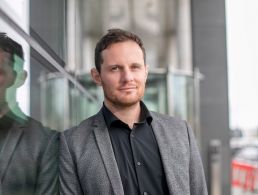This week’s interviewee is Michael Galvin, Cisco’s general manager for Ireland.
Why did you select the West of Ireland to locate an R&D presence?
Different markets have different nuances. The European market in particular has its own, particularly the way people work.
When we were looking at options to expand our development capability, we looked at several locations.
We chose Ireland for two reasons: the strong base of companies involved in telecoms development here and we also considered it an appropriate market in terms of the availability of postgraduate skills.
What work will the Galway centre carry out?
The operation will be responsible for the application of unified communications in organisations.
Not just about what they deploy but how they are using the technology and getting efficiency out of it. Galway will be the world centre for that activity.
Where should the problem of insufficient science and technology graduates be addressed?
I would say it should be addressed at primary level in school when their minds are open to absorbing science.
My son just sent me an instant message (IM). Teachers should be open to the tools they use at home which are superior to those at school. They have IM, computer games, the internet; that’s the way they communicate.
The very tools they are using now are the tools they will use in the working world.
Teachers need to realize they are problem solving and orchestrating knowledge in a different way.
Ireland needs to equip and reskill its workforce to become knowledge orchestrators.
What solutions do you suggest?
Firstly better cooperation between the public sector and the private sector. We need to instill a sense of lifelong learning in the Irish workforce. Employers will need to think about the personal development of their workers.
Industry and policy makers will need to work together decisively and consistently to deliver. I think there’s a real risk we will miss an opportunity for future prosperity if we don’t get this right.
Is the Galway facility getting the skilled graduates it is seeking?
We are ahead of schedule in that 72 people are on board and in time for September. The plan is to eventually get to 200 people.
By John Kennedy




